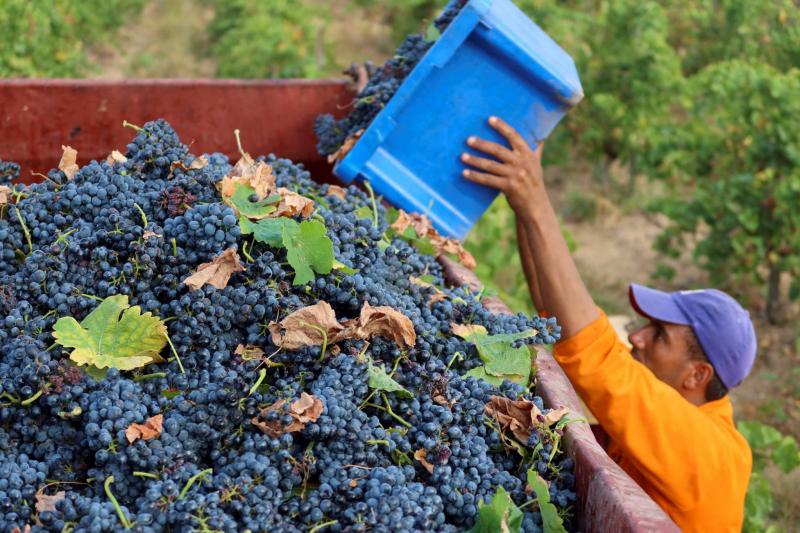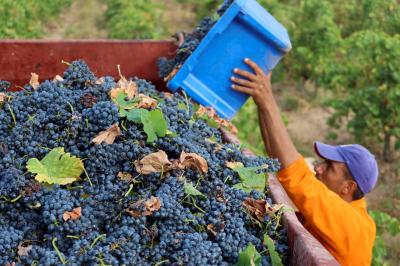The summer heat has harmed Tunisia's small wine industry, leading to damage or destruction of the grape harvest and causing farmers and wine traders to fear for their future due to climate change making the weather hotter and drier in North Africa. Farmer Wajdi Qaraiah stated that his production has decreased by between fifty and sixty percent this year, after temperatures rose in July to between 38 and 48 degrees Celsius, and that the heat has lowered the sugar levels in the grapes he cultivates.
He added, "The temperatures were very high, ranging from 38 to 48 degrees, and it significantly affected the grape clusters. The sugar present in the grapes has diminished; the clusters dried out due to the heat and lack of rainfall this year." He pointed out that "these climate changes have impacted the quantity and quality of production, which affects the sector as a whole. We have now delayed the harvest process to reach acceptable sugar levels to produce good quality wine, but this will affect the quantity of the harvest."
Qaraiah remarked, "Farmers are suffering this year; some farmers couldn’t harvest any grape clusters from their crops. Non-irrigated crops produced nothing, and while irrigated crops resisted a little, most farmers were greatly harmed." In ancient times, Tunisia was a major wine producer under the Carthaginian and Roman empires, and commercial production began again during French colonization, but it never became a significant exporter.
Nevertheless, Tunisian supermarkets stock a wide range of locally produced wines, many of them from the fertile northern hills near the tip of the Cap Bon peninsula. Grapes are harvested early in the morning and transported to a modern processing facility in Takelsa, central Tunisia, to be turned into wine. At the Takelsa Hills winery, which produces wine from grapes cultivated by Qaraiah and about 160 other farmers, company director Hamadi Barik mentioned that he is rescheduling farmers' debts and altering grape specifications to help them manage.
Winemakers in France and other parts of Southern Europe have also warned of decreased wine production this year due to rising temperatures.




